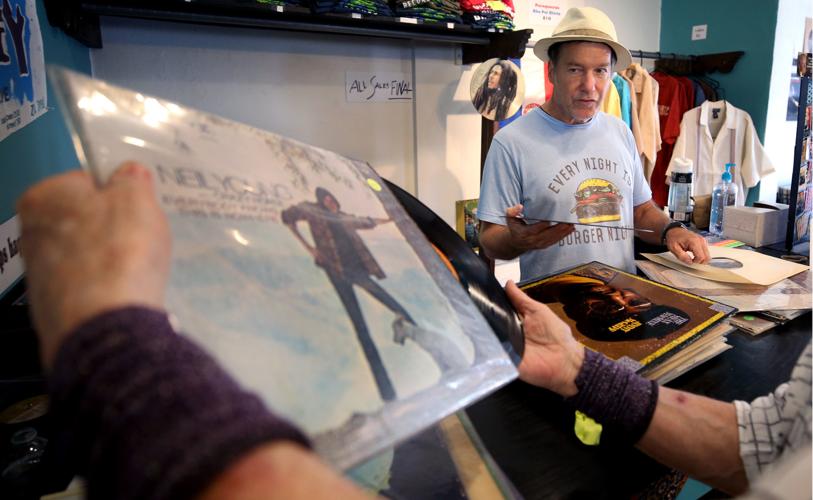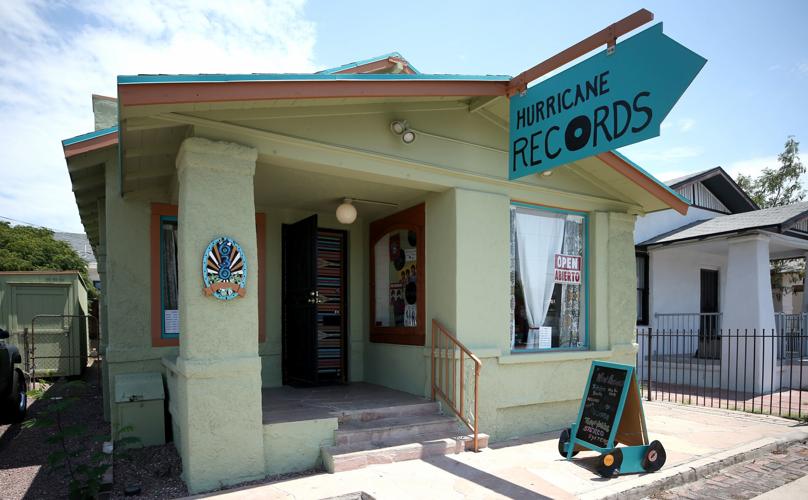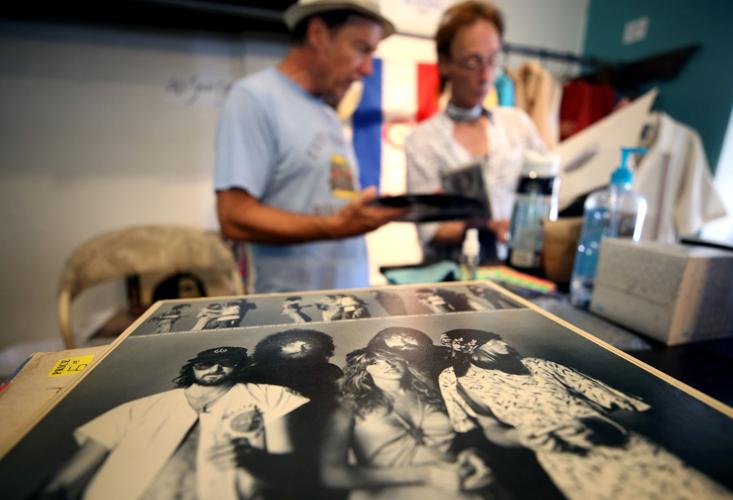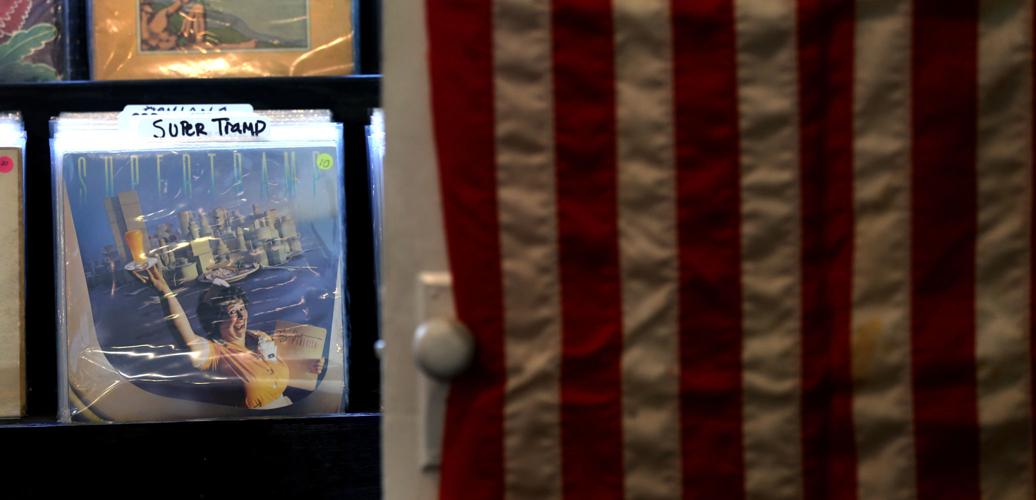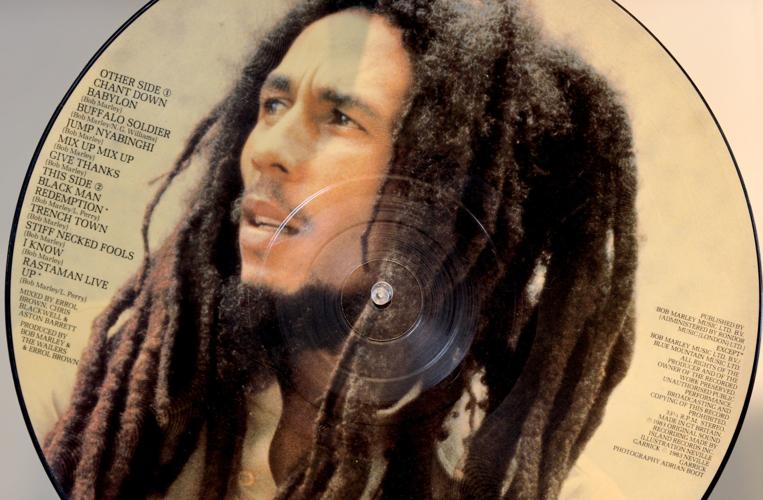Hurricane Records on Tucson’s North Fourth Avenue is a bit of a time machine.
Rock ’n’ roll plays on the stereo, vinyl records fill boxes on the walls and collectors both young and old flip through the stacks, on a treasure hunt for the classics of the past. It’s like it’s 1966.
Vinyl rules at Hurricane and other record stores around the country. Even with easy access to digital platforms such as Apple Music and Spotify, the vinyl industry has exploded, reaching a 30-year-high, according to Fortune magazine.
University of Arizona student Jack McCauley jumped on the vinyl trend when he recently started collecting records.
“First of all there’s a better sound quality with vinyl on good speakers,” the 21-year-old says. “There’s also something to the physical experience to putting on a record compared to Spotify. It adds another dimension to the music as an art.”
Craig Schumacher, owner of Wavelab Recording Studio downtown, agrees. He says that sound quality is one of the main reasons vinyl is making a comeback. In theory, he says, the audio coming from a vinyl record is closest to how we hear things naturally.
“The sound hasn’t been chopped into bits,” Schumacher explains. “Our brain relaxes more and we accept it more.”
Continuous audio, he adds, means that the music is played from one single wavelength that is carved into the vinyl by a tiny lathe. For digital music the audio we usually hear is separate wavelengths played in unison.
A noticeable difference in quality only comes with higher-end record players.
Another reason people listen to vinyl is the physical involvement, says Schumacher.
“The iPod took that user experience away because you have your own jukebox with no interactivity anymore,” he said. “Whereas records, you kind of have to be a DJ in a way.”
Schumacher says that for the generation of people who didn’t grow up on records, vinyl is a whole new way to listen to music.
“The process hasn’t really changed since Edison,” Schumacher says. “Suffice to say there is no new (way to listen) on the horizon.”
THE LOCAL MARKET
Wooden Tooth Records was an early entry into the new wave of the vinyl business in Tucson. It opened in 2015 and operated out of the back of Cafe Passe on North Fourth Avenue. Now at East Seventh Street, co-owner Kellen Fortier says business is good, despite several competitors opening in the last year.
“I think we’ve established ourselves pretty well,” says Fortier, who wanted to start a record store in Tucson after his favorite store, Toxic Ranch, closed in 2014.
While he thinks the market is headed for oversaturation, Wooden Tooth is looking to expand and begin hosting live music.
Zia Record Exchange started in 1980 and has survived through the digital revolution and thrived with the renewed interest in vinyl.
With six Arizona locations and two in Las Vegas, Zia is among the top sellers of new and used vinyl in the Southwest. Despite the closure of one of the two Tucson locations, Zia marketer Jason Woodbury says thus far there is enough demand to support the supply in Arizona.
He thinks the reason markets are facing increasing interest is because vinyl isn’t about any one genre.
“If you’re into music then collecting records is for you,” Woodbury says. “I think there is a luxury or a sense of freedom in sitting down with something that’s not on your phone.”
Zia and Wooden Tooth rely on people selling records directly to the stores. Hurricane Records, Tucson’s newest record shop, purchases big collections from different parts of the country.
“I buy a lot of my stuff from collectors in Texas,” says Hurricane’s musician/owner Rich Hopkins. “There are people who will spend $25,000 on a collection, who can resell for $40,000 or $50,000.”
This approach means that Hurricane can introduce more variety in its collection, appealing to a wider base of customers.
“I don’t think anyone has as good a collection of Stones and Beatles than I do,” Hopkins says. “I’m looking for stuff that is affordable and interesting.”


